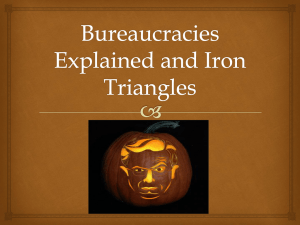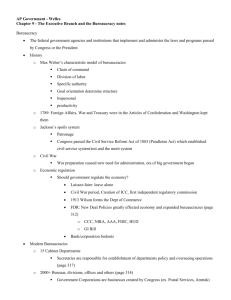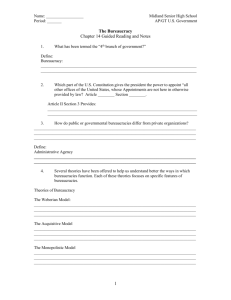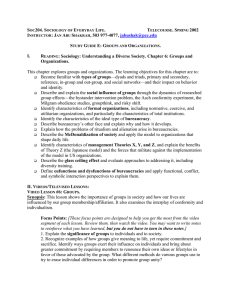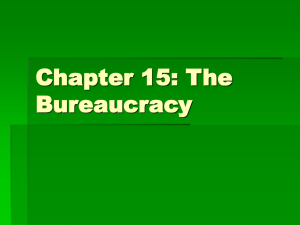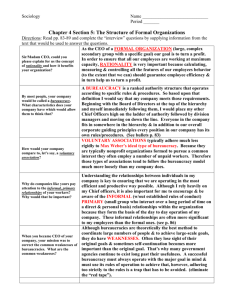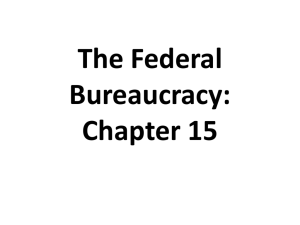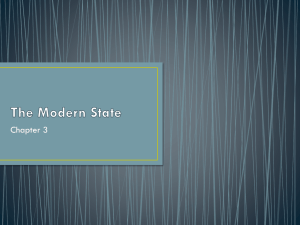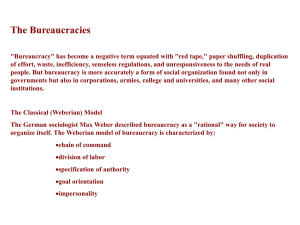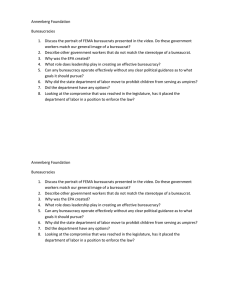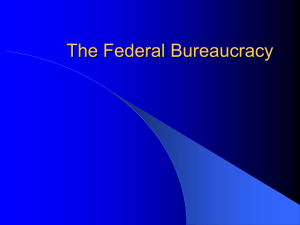17.202 Response Paper #7 Bureaucracy
advertisement
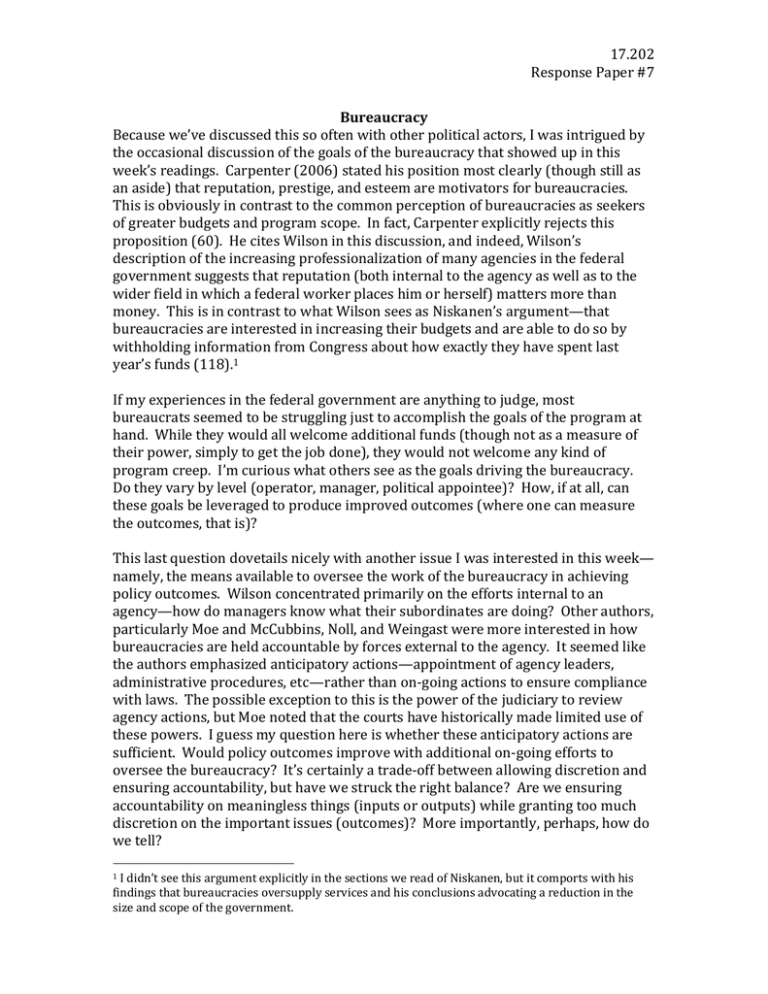
17.202 Response Paper #7 Bureaucracy Because we’ve discussed this so often with other political actors, I was intrigued by the occasional discussion of the goals of the bureaucracy that showed up in this week’s readings. Carpenter (2006) stated his position most clearly (though still as an aside) that reputation, prestige, and esteem are motivators for bureaucracies. This is obviously in contrast to the common perception of bureaucracies as seekers of greater budgets and program scope. In fact, Carpenter explicitly rejects this proposition (60). He cites Wilson in this discussion, and indeed, Wilson’s description of the increasing professionalization of many agencies in the federal government suggests that reputation (both internal to the agency as well as to the wider field in which a federal worker places him or herself) matters more than money. This is in contrast to what Wilson sees as Niskanen’s argument—that bureaucracies are interested in increasing their budgets and are able to do so by withholding information from Congress about how exactly they have spent last year’s funds (118).1 If my experiences in the federal government are anything to judge, most bureaucrats seemed to be struggling just to accomplish the goals of the program at hand. While they would all welcome additional funds (though not as a measure of their power, simply to get the job done), they would not welcome any kind of program creep. I’m curious what others see as the goals driving the bureaucracy. Do they vary by level (operator, manager, political appointee)? How, if at all, can these goals be leveraged to produce improved outcomes (where one can measure the outcomes, that is)? This last question dovetails nicely with another issue I was interested in this week— namely, the means available to oversee the work of the bureaucracy in achieving policy outcomes. Wilson concentrated primarily on the efforts internal to an agency—how do managers know what their subordinates are doing? Other authors, particularly Moe and McCubbins, Noll, and Weingast were more interested in how bureaucracies are held accountable by forces external to the agency. It seemed like the authors emphasized anticipatory actions—appointment of agency leaders, administrative procedures, etc—rather than on-going actions to ensure compliance with laws. The possible exception to this is the power of the judiciary to review agency actions, but Moe noted that the courts have historically made limited use of these powers. I guess my question here is whether these anticipatory actions are sufficient. Would policy outcomes improve with additional on-going efforts to oversee the bureaucracy? It’s certainly a trade-off between allowing discretion and ensuring accountability, but have we struck the right balance? Are we ensuring accountability on meaningless things (inputs or outputs) while granting too much discretion on the important issues (outcomes)? More importantly, perhaps, how do we tell? I didn’t see this argument explicitly in the sections we read of Niskanen, but it comports with his findings that bureaucracies oversupply services and his conclusions advocating a reduction in the size and scope of the government. 1 MIT OpenCourseWare http://ocw.mit.edu 17.202 Graduate Seminar in American Politics II Spring 2010 For information about citing these materials or our Terms of Use, visit: http://ocw.mit.edu/terms.
